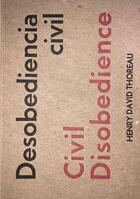
Henry David Thoreau (1817-1862). Essayist, surveyor, born dissident and master of prose, his real job was, as he took care to remember, "inspector of blizzards and deluges." His name has reached our days linked to two capital books for individualist and anti-authoritarian thought: Essay on Civil Disobedience (1849) and Walden (1854). Walking (Walking) was, however, in Thoreau's lifetime, his most popular work. Conceived as a conference and read on numerous occasions, it was only published posthumously. It is, above all, an exposition of the philosophy of wandering, but also the defense of a "wild thought" that throws on our consciousness a light more similar to that of a lightning bolt than that of a candle. His irony and the vagabond direction that his reflections take at times make reading this book as invigorating as a good morning walk. And Thoreau need not remind us that "boredom...read more







